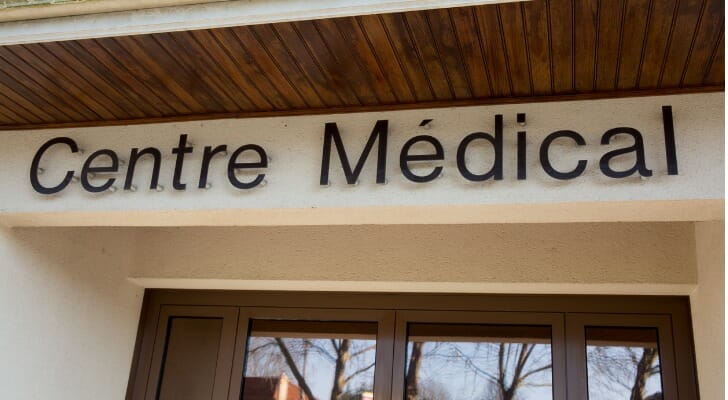Do you envision your retirement sipping Bordeaux and champagne in Paris, relaxing in a stunning seaside villa in Biarritz, or skiing the Alpine slopes of Chamonix beneath Mont Blanc? If retiring in France is your dream, it’s important that you be informed about key aspects, including visa requirements, healthcare costs, taxes and more. For personalized guidance on making your retirement in France a reality, a financial advisor can provide valuable assistance.
Getting a French Visa
The issuance of French visas was briefly paused due to the COVID-19 pandemic, but the process has since resumed smoothly. For American citizens, obtaining a long-term residency in France is generally straightforward.
If you intend to stay in France for over a year, you’ll need to secure a “carte de séjour à solliciter” – a residence permit. You must apply for this permit in the U.S. at least three months before your planned arrival in France. Keep in mind that you cannot apply for a French residency card if you are already in France as a tourist.
You’ll need to provide plenty of documentation, including:
- A passport
- Application forms
- Extra passport photos
- Ability to show financial self-sufficiency
- Demonstration of international medical insurance
- Proof of where you’ll live in France
You can apply for a French visa at a consulate in person or by mail, but an in-person interview at a consulate or embassy will be required. The visa process typically takes one to two months, so it’s wise to contact your nearest French consulate beforehand to confirm you have all necessary documents, which can help prevent delays.
Once in France, you’ll need to renew your carte de séjour annually. After three years of residency under this permit, you’ll become eligible to apply for a 10-year residency card.
Remember, for stays longer than a year, you must obtain a carte de séjour à solliciter, a residence permit, while still in the U.S. Apply three months before your planned arrival, as it’s not possible to secure this permit as a tourist within France. This residency card will allow you to work if you want to and will renew automatically.
Housing Costs in France
In general, the cost of living in France and the United States is similar, but rent costs significantly less in France than in the United States. According to November 2024 data from Numbeo, the average rent in the U.S. is 100% higher than in France. For a one-bedroom apartment in central Paris, for example, rent is about $1,400 on average. In the center of New York, by comparison, a one-bedroom apartment costs about $4,000 on average. Outside of the city center, the same apartment in Paris would cost about $1,060 and outside the center of New York City the same apartment would cost about $2,800.
Because rent is significantly less in France than in the United States, you can live a similar lifestyle for less. If you keep the same budget as you have before moving to France, you’ll likely have plenty of funds left over each month to either spend or save. Food, utilities, entertainment and other consumer goods are priced similarly to what you’d find in the United States.
Healthcare in France

The healthcare system in France is one of the top 10 in the world, according to a study by CEOWORLD magazine. As a resident, you’ll have access to the same healthcare benefits as French citizens. You’ll be asked to show proof of foreign health insurance to obtain your visa, but you can receive national healthcare benefits once you’re a French resident.
A typical visit to the doctor costs about $10 to $30. As a resident, you’ll receive 70% of your healthcare costs back, though the country also reimburses up to 100% of costs for low-income individuals. Prescription medicine is less than half the price you pay in the U.S. for most drugs. If you develop a need for long-term healthcare, such as diabetes or cancer treatment, the medication will be free. You’ll be expected to pay any fees or charges at the time of your visit.
Hospitals and private clinics offer some of the best quality of care in the world. Specialists have fixed fees dictated by the government, so you don’t have to worry about overpaying in the French healthcare system.
Taxes in France
For your first few years in France, you won’t be able to work. If you choose to work when you receive your 10-year residency card, your tax rates will be the same as locals.
Planning to use the French healthcare system requires you to be paying into the national social security fund. If you aren’t taking an income in France, you must fill out a Form E121/S1 from the Department of Work and Pensions.
Foreign residents of France are also taxed on their retirement income. Whether this is from a pension or otherwise, you’ll be required to show proof of your financial independence and pay taxes accordingly.
Safety in France
Overall, France is a safe country, especially outside large cities. In a few urban areas, though, the French have a recent history of terrorist attacks, and there is crime in some of the poorer banlieues (suburbs) around Paris. They have made several changes to their public security measures and have implemented anti-terrorism powers. On the whole, violent crime, vehicle crime and otherwise occur at similar rates to the United States.
Be sure to check the website of the U.S. State Department for any travel alerts.
Bottom Line

From beautiful beaches to vineyards to some of the best ski slopes in the world, France has something for everyone. It can be a challenge to become a citizen or permanent resident of countries in Europe. However, what France offers makes the effort worthwhile. France has rich culture, some of the best healthcare in the world and relatively low crime rates. With all of these reasons, it’s no wonder many American retirees want to settle in France.
Tips for Achieving Retirement Goals
- Consider talking to a financial advisor about making a plan for retiring overseas. Finding a qualified financial advisor doesn’t have to be hard. SmartAsset’s free tool matches you with up to three financial advisors who serve your area, and you can interview your advisor matches at no cost to decide which one is right for you. If you’re ready to find an advisor who can help you achieve your financial goals, get started now.
- It’s tough to plan for your retirement if you aren’t sure what kind of costs you’ll have when you retire. To get an idea of what to expect, stop by SmartAsset’s retirement calculator. To use this, you’ll need a few details about where you want to retire, when you want to retire and how much you have in savings.
Photo credit: ©iStock.com/neirfy, ©iStock.com/OceanProd, ©iStock.com/EoNaYa
